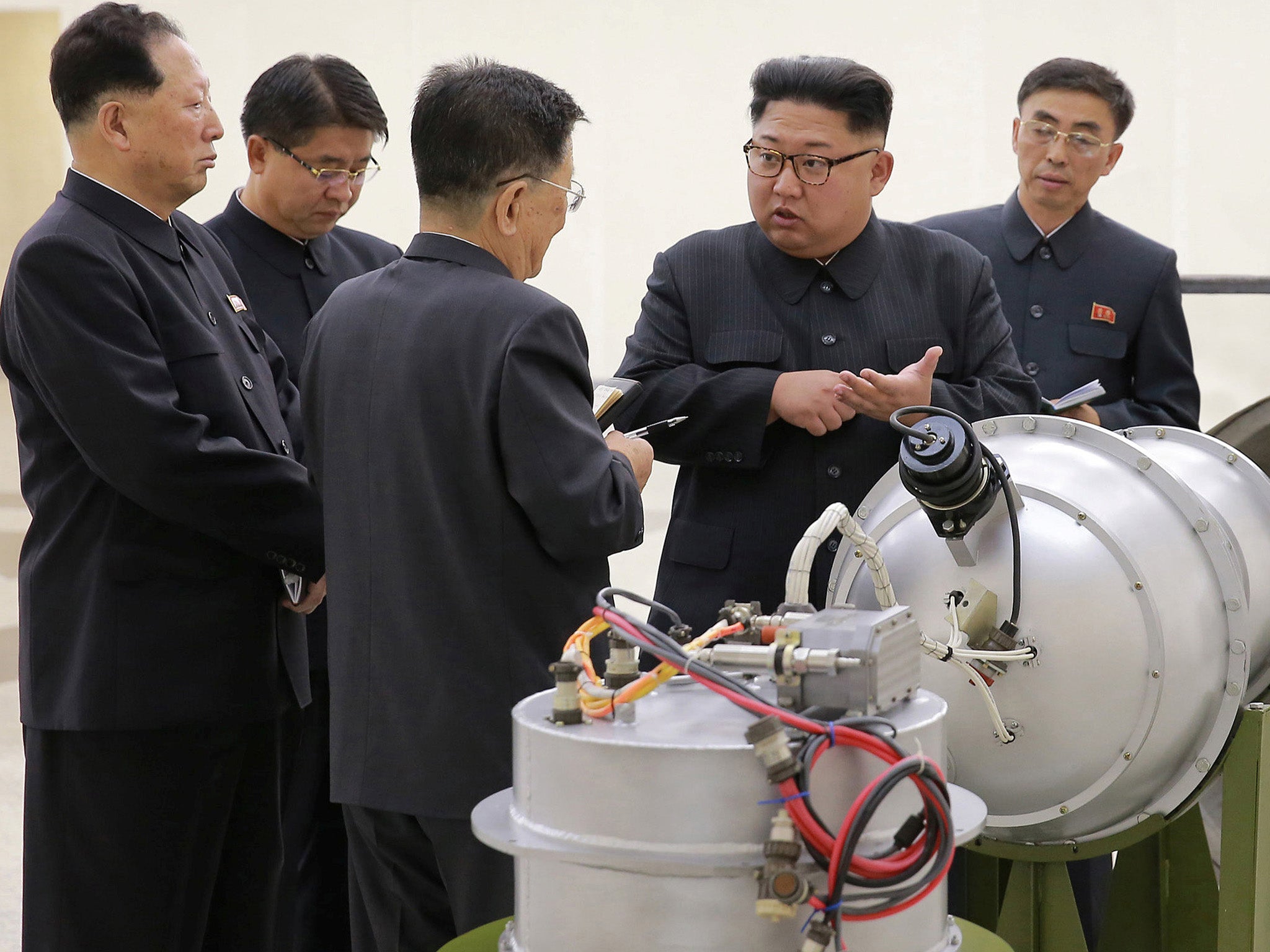The prospect of conflict over North Korea is becoming increasingly real
What has changed in the past year is that the rapid refinement of North Korea’s missile and nuclear programmes has coincided with the election to the American presidency of the most unpredictable character to ever hold the office

The testing of what appears to have been a miniaturised hydrogen bomb by the North Korean regime has further heightened tensions between Pyongyang and the international community. The US, Russian and Chinese governments all released statements condemning the development, with President Trump tweeting that “talk of appeasement” was not working.
Fundamentally, North Korea poses an almost insoluble problem to the rest of the world. Negotiating with a dictator who has access to nuclear weapons and boasts of plans to attack the West is nigh on impossible; yet equally no military initiative could realistically bring peace without a great deal of destruction first. This has been the dilemma for more than a decade, since the Agreed Framework between North Korea and the US – under which the former’s nuclear programme was to be radically downsized in return for a slow normalisation of relations – broke down finally in 2003.
Since that time, the strategic objectives of the North Koreans have been broadly consistent: first, to build up a sufficiently sophisticated arsenal of weapons that the international community cannot take military action without risking almost certain catastrophe in the region; second, to convince the West (but ultimately the US) that Pyongyang has the capacity to strike first.

Most observers argue that these policies are driven by a belief that only such strongman tactics will ultimately create an atmosphere in which the international community accepts that it must negotiate with North Korea over the question of sanctions, which – in part because of Pyongyang’s spending of resources on its military – continue to make economic growth in the country impossible.
What has changed in the past year is that the rapid refinement of North Korea’s missile and nuclear programmes has coincided with the election to the American presidency of the most unpredictable character to ever hold the office. With each passing week his attitude towards Pyongyang appears to shift. We have had the threat to bring “fire and fury” to Kim Jong-un’s pariah state; then 10 days ago, Mr Trump suggested that the North Koreans were beginning to respect America; now he says that appeasement is ineffective.
Such unpredictability is dangerous for all sorts of reasons, especially when nuclear warheads are involved. Yet it is particularly problematic when it comes to thorny global affairs because this is when firm alliances are crucial. And while the world may be united in desiring that Mr Kim steps back from the brink, Mr Trump’s off-the-cuff approach gives potential allies pause for thought.
Most obviously, the Chinese – so often the subject of Mr Trump’s blasts themselves – must wonder what the man in the White House is really thinking. The last thing that China wants is a conflict involving their southerly neighbour, which in turn regards Beijing as its only ally (of sorts). As such, the fiery rhetoric that President Trump is wont to employ is hardly something that the Chinese can endorse.

Equally, China must be exhausted by Mr Kim’s endless brinkmanship. While it remains the case that it is President Xi Jinping who has the best chance of persuading Mr Kim to take a different course (primarily by his trade policy), it feels increasingly as if North Korea’s isolation has led Mr Kim to the paranoid conclusion that not even old friends in Beijing are to be trusted. That is a deeply troubling prospect.
Britain’s Foreign Secretary, Boris Johnson, has suggested there is “no easy military solution” to the North Korean threat. Steve Bannon, Mr Trump’s recently departed chief strategist went further last month when he said there was “no military solution” at all.
Yet Mr Bannon is out of the White House now and – while there are plenty of sensible heads among America’s military top brass – the man with his finger on the nuclear button is the man who reportedly asked a foreign policy expert why, given that America had atomic weapons, they could not use them. The President says the exchange never took place – another example of fake news. Whatever the truth of the claim, it is difficult to avoid the conclusion that the prospect of conflict over North Korea is disturbingly real.
Join our commenting forum
Join thought-provoking conversations, follow other Independent readers and see their replies
Comments
Bookmark popover
Removed from bookmarks